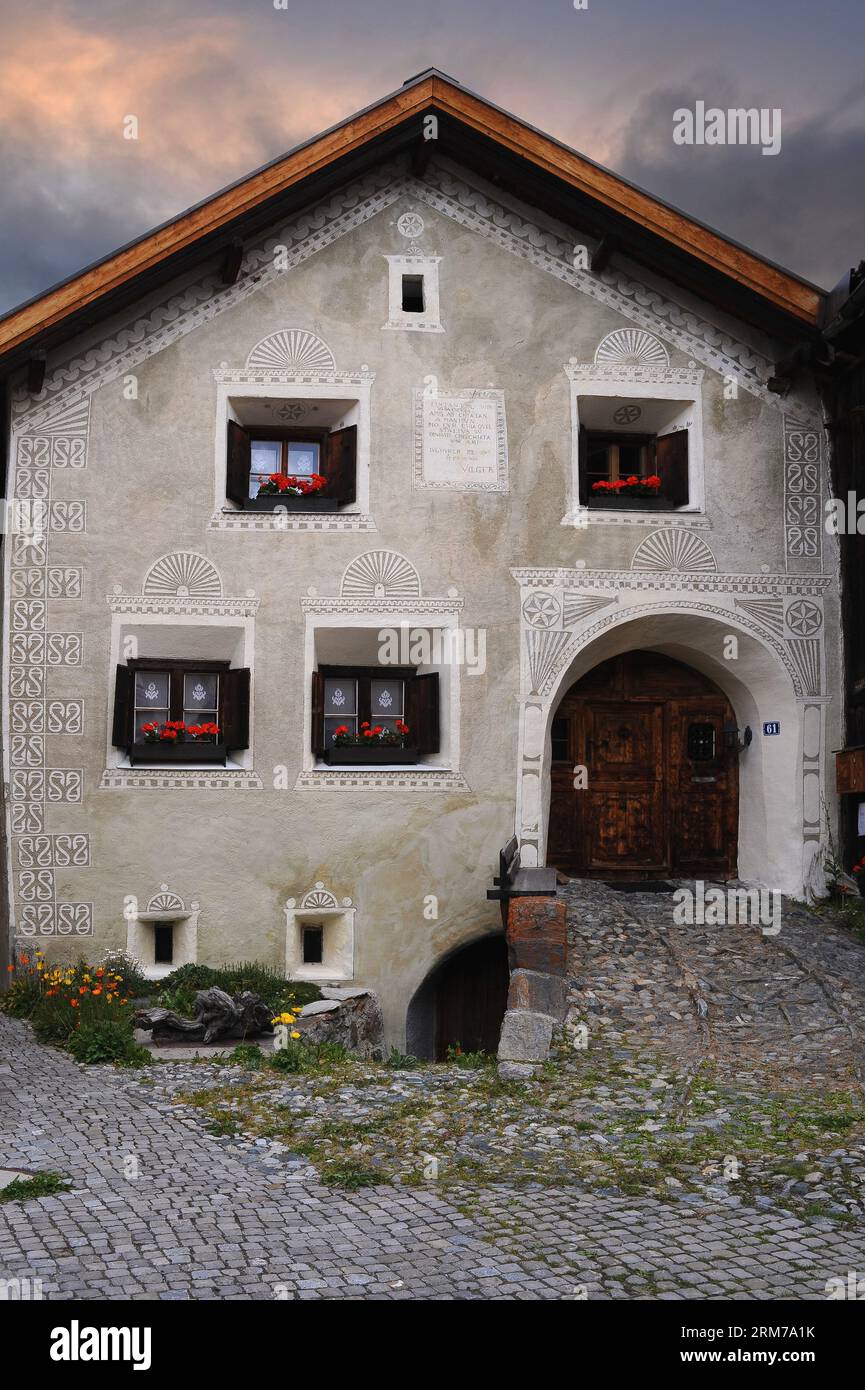Romansch language and red geraniums. Traditional house in Guarda, a mainly Romansch-speaking village in the Lower Engadin Valley in Graubünden or Grisons canton, Switzerland.

Image details
Contributor:
Terence Kerr / Alamy Stock PhotoImage ID:
2RM7A1KFile size:
34.5 MB (2.2 MB Compressed download)Releases:
Model - no | Property - noDo I need a release?Dimensions:
2832 x 4256 px | 24 x 36 cm | 9.4 x 14.2 inches | 300dpiDate taken:
21 July 2007Location:
Guarda, Graubünden or Grisons canton, SwitzerlandMore information:
This image could have imperfections as it’s either historical or reportage.
Guarda, Graubünden or Grisons canton, Switzerland: inscription in Romansch on house facade. Romansh is a Romance language descended from the spoken language of the ancient Roman Empire. It was recognised as among the national languages of Switzerland in 1938 and, in 2000, there about 60, 000 Swiss people who regularly spoke it. In 2019, around 40, 000 Swiss regarded Romansh as their main language. Guarda is a picturesque mainly Romansh-speaking village in the Lower Engadin Valley where houses date from the early 17th century and many paintings and sgraffito inscriptions are preserved on their façades. The designs are part of a rich cultural and architectural tradition recognised in 1975 when Guarda won the Wakker Prize, awarded annually by the Swiss Heritage Society to the municipality most successful at preserving and enhancing its architectural heritage. The Society described Guarda as one of the best preserved villages of the Lower Engadin, despite struggling with a harsh landscape, the demands of tourism and the migration of young villagers to Switzerland’s cities. Guarda is also the home of Schellen-Ursli (A Bell for Ursli), a popular children’s story written in Romansh by Selina Chönz in 1945. In 2015, the book was turned into the German-language feature film Little Mountain Boy, directed by Xavier Koller and starring Jonas Hartmann as Ursli. D1179.B4079